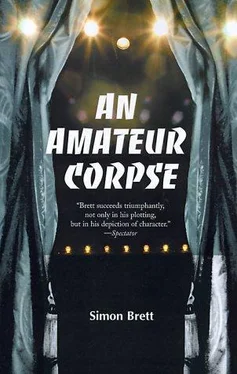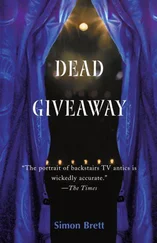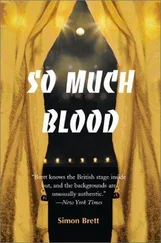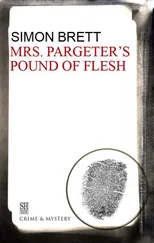Simon Brett - An Amateur Corpse
Здесь есть возможность читать онлайн «Simon Brett - An Amateur Corpse» весь текст электронной книги совершенно бесплатно (целиком полную версию без сокращений). В некоторых случаях можно слушать аудио, скачать через торрент в формате fb2 и присутствует краткое содержание. Жанр: Классический детектив, на английском языке. Описание произведения, (предисловие) а так же отзывы посетителей доступны на портале библиотеки ЛибКат.
- Название:An Amateur Corpse
- Автор:
- Жанр:
- Год:неизвестен
- ISBN:нет данных
- Рейтинг книги:3 / 5. Голосов: 1
-
Избранное:Добавить в избранное
- Отзывы:
-
Ваша оценка:
- 60
- 1
- 2
- 3
- 4
- 5
An Amateur Corpse: краткое содержание, описание и аннотация
Предлагаем к чтению аннотацию, описание, краткое содержание или предисловие (зависит от того, что написал сам автор книги «An Amateur Corpse»). Если вы не нашли необходимую информацию о книге — напишите в комментариях, мы постараемся отыскать её.
An Amateur Corpse — читать онлайн бесплатно полную книгу (весь текст) целиком
Ниже представлен текст книги, разбитый по страницам. Система сохранения места последней прочитанной страницы, позволяет с удобством читать онлайн бесплатно книгу «An Amateur Corpse», без необходимости каждый раз заново искать на чём Вы остановились. Поставьте закладку, и сможете в любой момент перейти на страницу, на которой закончили чтение.
Интервал:
Закладка:
Charles looked straight at him and Hugo looked away, again slightly sheepish, admitting that the homicidal threat was also for effect.
‘Who are you going to kill?’ Charles teased. ‘Charlotte?’ Hugo was instantly serious. ‘No, not Charlotte. I wouldn’t touch Charlotte. Whatever she did, I wouldn’t touch her.’
‘Then who?’
Hugo looked at Charles vaguely, distantly, as if piecing together something that had only just occurred to him. Then he said slowly, as if he didn’t believe it, ‘Friends of Charlotte’.
Charles took a risk and laughed. Hugo looked at him suspiciously for a moment and then laughed too. Soon after they went to bed.
Charles didn’t think too much about what Hugo had said. Obviously his friend was under pressure and all wasn’t well with his marriage, but most of the trouble was the drink. Anyway, Charles had domestic problems of his own to worry about. His last thought, before he dropped into the alcohol-anaesthetized sleep which was becoming too much of a habit, was the next day he had to see his wife for the first time in five months. At the christening of their twin grandsons. Grandsons, for God’s sake.
CHAPTER THREE
The Christening went okay, he supposed. Difficult to say, really. It was a long time since he had been tu one with, which to compare it. The twins were healthy five-month-old boys and they were successfully received into the Church of England in Pangbourne in Berkshire, which was where Charles’s daughter Juliet and her husband Miles (who was apparently carving a successful career for himself in insurance) lived. The boys were named Damian and Julian, which would not have been their grandfather’s choice. So everything went as it should have done. But it was not an easy day for Charles. Being with Frances and behaving as if they were still conventional man and wife had been strange. In some ways seductively appealing. His mind was still full of the bourgeois morality of Breckton and he found himself wondering whether it could have worked, he and Frances as a couple, growing old together, building a family, having Juliet and the kids over for Sunday lunch and so on. But deep down he knew that he’d followed the only course open to him when he’d left Frances in 1961. He still loved her, still often would rather spend time with her than anyone else, but he never wanted to get back into the claustrophobia of always being there, always being answerable.
In a way, his leaving her had been as romantic as Hugo’s leaving of Alice. But, unlike Hugo, Charles hadn’t thought it was all possible, that a new woman could make it all all right again. He had left so as to keep some illusions. He didn’t want just to sink into a middle age of disappointed bickering. Nor did he want to feel guilty if he had affairs with other women.
Of course, it hadn’t worked. Guilt had remained in some form in all his affairs and much of the time he had been just lonely. But his single state gave him a kind of perverse integrity.
The situation had been complicated when it transpired that Frances had developed some sort of boyfriend. Charles never knew how serious the relationship was. The only thing he did know was that, illogically, it made him jealous.
And so, even more illogically, did seeing Frances so wrapped up in the twins. He felt excluded, as he had when she had been pregnant with Juliet.
That was the trouble. Whenever he saw Frances, unwelcome emotional confusion crowded into his mind. When he didn’t see her, he could exist quite happily from moment to moment, without thinking all the time that feelings had to be defined and formalized.
At the christening he hardly saw her. It was a public occasion, there were other people there, he had no real chance to ask her the sort of questions he wanted to. Or felt he ought to.
He went through it all in the train on the way back to London. He must ring Frances — soon. They must meet and talk, really talk.
The day had increased the unease which the atmosphere between Hugo and Charlotte had fomented in him.
He tried to think if there was anything comforting that had emerged. Only the fact that his son-in-law Miles, Mr. Prudent, king of the insurance world, with a policy for every hazard, had not insured against twins.
The Monday recording session was for a series of radio commercials, which was much less hairy than the voice-to-picture session which had preceded it. All Charles had to do was to read some copy in the same voice that he had used in the television commercials.
Not very hard work. And well spread out. Even this simple job was to be done in two sessions: half of the commercials were to be recorded the following Tuesday morning.
The whole voice-over business still puzzled him. Giving a couple of dozen readings of a banal endorsement for some product which no self-respecting housewife should be without didn’t fit into his definition of acting.
Still, the money was good, potentially very good. And it was different. And so long as one didn’t take it too seriously, it was better than sitting at home waiting for the telephone to ring.
It had started out of the blue some two months before with a bewildered call from his agent, Maurice Skellern. Someone from Mills Brown Mazzini had been enquiring about Charles Paris’s availability for voice-over work. That had led to a series of in-house voice tests in a tatty studio at the advertising agency.
Presumably (though no one ever actually told him so) these had been successful because within a week he had been summoned to a session of voice-to-picture tests. These had been more elaborate, in a swish professional dubbing theatre, and attended by an enormous gallery of advertising people, all of whom, it seemed, had the right to give him notes on his performance.
Again (though nobody actually said so) he must have been successful, because soon after he was summoned to put his voice to three television commercials, which were apparently on test transmission in the Tyne-Tees area.
It was Hugo Mecken he had to thank for this new development in his acting career. It seemed that Hugo had secured the account for a new bedtime drink which was being launched by a huge Dutch-owned drugs company. The drink was to be called Bland and the campaign had been agreed on some months before. It was to be led by a cartoon character called Mr. Bland who wore a top-hat and tails. In the launching series of animated television commercials he was to visit a tribe of little fuzzy red creatures called the Wideawakes. When presented with cups of Bland on a silver salver by Mr. Bland, they gradually turned pale blue and fell asleep. Over their snoring, Mr. Bland intoned the words, ‘Bland soothes away the day.’
The voice of Mr. Bland, which, if the campaign took off as it was hoped, would be a very lucrative assignment, had gone to Christopher Milton, a well-known stage and television actor (who, apart from his current success in the musical Lumpkin! at the King’s Theatre, was said by Hugo recently to have signed a contract for?25,000 to do an in-vision commercial for instant coffee).
All this had been agreed with the Brand Manager for Bland, the animation voice-track was recorded and the animation work was started. From which point all should have gone well until the launching of the product.
But during the interval between the agreement of the campaign and the completion of the three test commercials the Brand Manager for Bland had been appointed European Marketing Manager for the huge Dutch-owned drugs company. His successor on Bland, a Mr. Farrow, saw the commercials and, as a matter of principle, didn’t like them. Because of the proximity of the launch date and because of the enormous cost of the animation, he couldn’t afford to make radical changes in the campaign. So he homed in on the voice.
Читать дальшеИнтервал:
Закладка:
Похожие книги на «An Amateur Corpse»
Представляем Вашему вниманию похожие книги на «An Amateur Corpse» списком для выбора. Мы отобрали схожую по названию и смыслу литературу в надежде предоставить читателям больше вариантов отыскать новые, интересные, ещё непрочитанные произведения.
Обсуждение, отзывы о книге «An Amateur Corpse» и просто собственные мнения читателей. Оставьте ваши комментарии, напишите, что Вы думаете о произведении, его смысле или главных героях. Укажите что конкретно понравилось, а что нет, и почему Вы так считаете.












